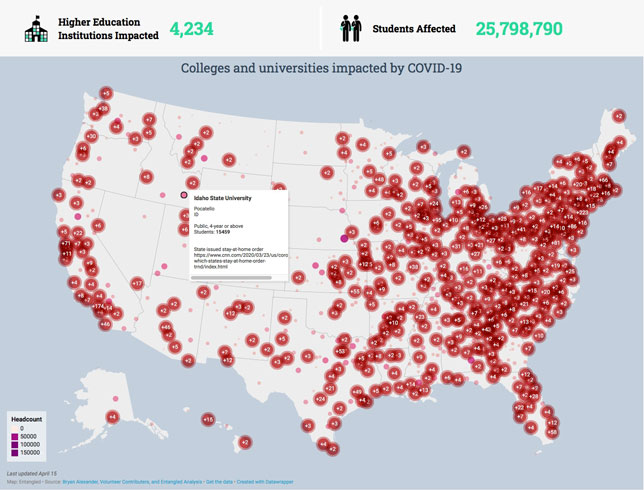4,000-Plus U.S. Higher Ed Institutions Impacted by COVID-19; More Than 25 Million Students Affected

Screenshot of COVID-19 Impact Map, as of April 16, 2020
At last count, 4,235 higher education institutions across the United States have been impacted by the coronavirus pandemic — affecting an estimated 25,798,790 students, according to a visualization from Entangled Solutions. The research firm's COVID-19 Higher Education Resource Center features a map of college campuses that have been closed or otherwise impacted by the virus, based on data collected by consultant Bryan Alexander and volunteer contributors and analyzed by Entangled.
Each institution is represented by a dot on the map that is color coded by enrollment size and, if available, includes information on specific state or campus policies, such as stay-at-home orders or classes moved online. The data can also be downloaded in a CSV file for further analysis. Institutions can share their status through a web form, and the map is updated twice a day.
Entangled is also hosting a weekly series of online Higher Education Town Halls, covering such topics as leadership through crisis, lessons from digitally forward institutions, career services and college recruiting, and more. Its next event, "Innovative Solutions to Increasing the Supply of Healthcare Providers," is scheduled for Friday, April 17 at 10 a.m. PT.
For more information and resources, visit the Entangled site.
About the Author
Rhea Kelly is editor in chief for Campus Technology, THE Journal, and Spaces4Learning. She can be reached at [email protected].